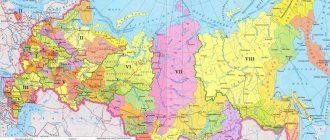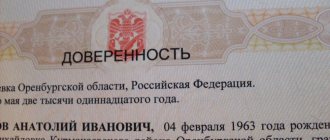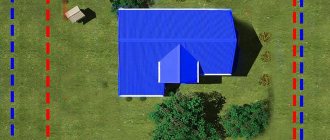Transfer of land
The main provisions for regulating land turnover are established, and the features are established. There are several forms of ownership:
- state - lands that are not owned by citizens or the municipality;
- municipal - plots given to municipalities during the delimitation of state property and legally recognized as such;
- private – agricultural plots and lands of settlements.
In relation to some lands of state and municipal property, restrictions on turnover have been established - the areas listed in Art. 27 of the Land Code of the Russian Federation, it cannot be transferred into ownership and privatized.
Territories that are privately owned, like other property, are subject to transfer by inheritance, gift, sale, or transferred in another way. This is called land alienation:
- in a paid or gratuitous form;
- voluntary or forced.
Depending on the scope of rights transferred when concluding transactions, the latter can be divided into 2 groups:
- purchase and sale, exchange, donation, redemption of land. It is assumed that all rights to ownership, use and disposal will be transferred in accordance with Art. 207 Civil Code of the Russian Federation;
- lease, transfer by power of attorney or trust management. Only a temporary transfer of the right to use is carried out, therefore such transactions are not alienation.
The legal aspects of alienation are more fully disclosed in the article “General characteristics of transactions with land plots.”
Any disposal of property is possible only if the plots have undergone the registration of ownership rights and are registered in the cadastral register in accordance with.
Only the availability of information about a land plot displaying the main characteristics in Rosreestr is confirmation of the legal rights to own it. Compliance with this condition makes it possible to fully own and dispose of the plot of land in accordance with civil law, which defines what alienation of a land plot is.
For citizens, proof of ownership and confirmation of registration in the Register is a cadastral passport.
All terms of the transaction are stipulated in the contract, which is drawn up in 3 copies: for the seller, the buyer and the state registration authority.
If the plot belongs to a minor citizen or is in common ownership, notarization is required.
The fact of transfer of ownership upon alienation of land is certified by state registration in accordance with the registration of real estate.”
Building sale agreement
You intend to buy a building. Let's assume that the land plot under the building is also owned by the seller. By virtue of the law, the buyer is transferred ownership of the land plot occupied by such real estate and necessary for its use (clause 2 of Article 522 of the Civil Code of the Russian Federation). The corresponding site must be described in the contract (Article 554 of the Civil Code of the Russian Federation). In other words, when selling a building, it is necessary to determine the parameters of the site necessary for the operation of the building. Such a plot cannot be the subject of an independent transaction.
The sales contract may provide for the price of the building and the price of the plot separately, but not necessarily. If the contract establishes only the price of the building, then it includes the price of the corresponding part of the land plot transferred with this building (clause 2 of Article 555 of the Civil Code of the Russian Federation).
In the first option, there are no problems with determining VAT. There is no tax charged on the price of the plot. Therefore, the buyer will only be issued an invoice for the cost of the building specified in the contract.
EXAMPLE The contract sets prices: for a non-residential building - 100 million rubles. excluding VAT, for the land plot located underneath it – 40 million rubles. In this situation, the buyer will be charged VAT in the amount of 18 million rubles. (RUB 100 million X 18%). The transaction amount, including VAT, is RUB 158 million. (100 + 18 + 40).
If the price of the plot is not isolated, then the tax base should be determined in the manner established for the sale of the enterprise as a whole as a property complex. This point of view is reflected in the letter of the Ministry of Finance of Russia dated March 27, 2012 No. 03-07-11/86. The seller draws up a consolidated invoice indicating the transaction price in the “Total including VAT” column. An inventory report indicating the book value of each of the objects is attached to the consolidated invoice (Clause 4 of Article 158 of the Tax Code of the Russian Federation). In such an invoice, the building and land plot are separated into independent items. The price of an object is taken to be equal to the product of its book value and the adjustment factor. And since operations for the sale of land plots are not recognized as an object of taxation, dashes are added to the line in which data on the plot is reflected in columns 7 “Tax rate” and 8 “Tax amount”. This procedure is supported by the resolution of the Federal Antimonopoly Service of the North-Western District dated February 12, 2007 in case No. A05-13851/2005-33.
On the line that reflects the data on the building, the sale of which is subject to tax, in columns 7 “Tax rate” and 8 “Tax amount”, respectively, the estimated tax rate of 15.26% (18/118 x 100%) and the tax amount are indicated , defined as the percentage of the tax base corresponding to the estimated tax rate.
EXAMPLE Let's assume that the transaction price is the same as in example 1 - 158 million rubles, including VAT, but it is the same. Prices for the building and the plot were not set separately. The book value of each of these objects in the seller’s accounting: building – 80 million rubles, land plot – 30 million rubles. Based on these data, the tax base is determined (clauses 2 and 3 of Article 158 of the Tax Code of the Russian Federation). The book value of the sold property is RUB 110 million. (80 + 30) – below the selling price – 158 million rubles. Therefore, the adjustment factor is 1.4364 (158 million rubles / 110 million rubles). Tax base: for the building – RUB 114,910,000. (RUB 80,000,000 X 1.4364), for the site – RUB 43,090,000. (30,000,000 X 1.4364). VAT is charged only on the building and amounts to RUB 17,528,644.07. (RUB 114,910,000 X 18/118).
We remind you that the following are exempt from VAT:
- sale of residential buildings, residential premises, as well as shares in them (subclause 22, clause 3, article 149 of the Tax Code of the Russian Federation);
- transfer of a share in the right to common property in an apartment building when selling apartments (subclause 22, clause 3, article 149 of the Tax Code of the Russian Federation).
How alienation can occur
According to the Land Code of the Russian Federation, citizens can be provided with land plots that are state or municipal property. The basis for challenge, in accordance with Art. 39.1 of the Land Code of the Russian Federation, serves:
- decision of the executive authority,
- free use agreement;
- purchase and sale agreement (trading, auctions, competitions).
The nuances of transferring federal and municipal land plots to citizens are discussed in the material “Land Allocation.”
The owner has the right to own, use and dispose of the plot at his own discretion, including alienation of the land. The transfer of rights to it is classified as follows:
- voluntary transfer: purchase and sale, barter, donation;
- refusal of the owner of a legal right (rent);
- forced seizure of a land plot based on a court decision on termination of ownership rights.
Any alienation must take place in accordance with the law, otherwise the acquisition of land will be considered unauthorized seizure or unlawful transfer of the site.
Occupying an allotment without legal grounds is an administrative offense for which liability is provided under Art. 7.1.
Voluntary alienation of property
The alienation of land plots at the will of the owner is regulated by the norms of civil legislation on transactions and contracts. Typically, in this two-way transaction there is a transferor and a receiver.
Ownership rights are transferred after concluding an agreement and registering changes in the Russian Register, sometimes with the consent of third parties. For example:
- alienation of a land plot in shared ownership requires the consent of all owners;
- alienation of agricultural land is possible only if municipal bodies waive the pre-emptive right to purchase;
- Alienation of an allotment acquired during marriage occurs with the notarized consent of the second spouse.
Participants in the transaction can be individuals and legal entities, the state and municipal authorities.
Forced alienation of land
Methods of alienation of private property are conditionally divided into 2 groups:
- expropriation, which is based on generally beneficial goals;
- confiscation is a sanction for an offense.
Confiscation of a privately owned land plot is possible only by court decision in cases where the plot is not used for its intended purpose or is not used at all. In some cases, forced seizure of plots without compensation for the value of real estate is assumed:
- foreclosure on property based on the owner’s obligations;
- reclaiming property from someone else's illegal possession.
During expropriation, it is possible to seize land plots for the needs of the state or municipality in the national interests, for public benefit or security. The owner is compensated.
Forced alienation of property by right of ownership
At the same time, the Civil Code of the Russian Federation contains norms according to which the alienation of property is not always a decision made by the subject of law independently and of his own free will.
Thus, the owner of property that, by virtue of the law, cannot belong to him (for example, if the alienated property is an item related to objects whose circulation is limited, clause 2 of Article 129 of the Civil Code of the Russian Federation), must alienate it within the time limits established by law (Article 238 of the Civil Code of the Russian Federation).
Another situation is when real estate objects located on a land plot seized due to improper use are sold at auction (Article 239 of the Civil Code of the Russian Federation).
Another example is the alienation of property associated with the imposition of a penalty on it. For example, foreclosure on housing that is the subject of a mortgage (Clause 1, Article 50, Articles 51, 55 of the Law “On Mortgage (Pledge of Real Estate)” dated July 16, 1998 No. 102-FZ).
Conclusion! Thus, these actions are performed by the copyright holder himself, albeit in accordance with the mandatory requirements contained in the law.
Under what conditions can an object be alienated?
Depending on the method of transfer of ownership, a certain procedure is established. For the voluntary alienation of a land plot, the following algorithm exists:
- Determination of the cost of the plot by agreement of the parties or based on the conclusion of an expert organization.
- Signing the purchase and sale agreement.
- Registration of property rights in Rosreestr.
The procedure for the purchase and sale of agricultural land is established by Art. 8 . The owner is obliged to notify the municipality in writing and against receipt of his intention to sell the plot, indicate the price and other terms of the transaction. The municipality has the right of first refusal at the price announced by the seller.
Agricultural lands cannot be alienated if local governments have not refused to acquire them and the seller has not received notice of the intention to buy the plot within 30 days.
The main condition for making transactions with land is its negotiability. Restrictions on transfer are established by the RF Land Code for:
- state reserves and national parks;
- areas included in the forest fund lands;
- specially protected natural areas;
- plots located next to water bodies of state or municipal property.
If these restrictions do not apply to the alienated land plot, transfer of ownership is possible under general conditions.
Stages
- Representatives of government authorities formulate the decision on alienation.
- The decision is sent to Rosreestr.
- The document is published in the media, as well as on the official Internet portal.
- The owner of the land is notified that a decision regarding alienation has been made.
- Conducting an appraisal to determine the cost.
- An agreement on the transfer of ownership rights is drawn up between the owner and the state.
- Payment of the cost of land, or provision of a similar plot of land.
- Registration of property rights.
In what order is alienation performed?
The only transaction with land plots that is concluded orally is a lease for up to 1 year. Therefore, the first stage of alienation is the conclusion of a written agreement indicating:
- parties and the subject of the contract with exact characteristics;
- the absence of a ban on transactions and encumbrances: pledges, leases, easements;
- contract prices and payment method;
- other obligations of the parties.
The next stage is registration of the transfer of ownership. In fact, the alienation of a land plot by its owner to other persons is carried out only after registration in the Unified State Register of Rights to Real Estate.
Partial alienation of allotment
There are often cases when a land plot has several owners and one of them decides to sell, donate or exchange his share. The general principle of property rights does not prohibit them from disposing of their part of the property. But to do this, it is necessary to notify the other owners of the intention to carry out shared alienation of a privately owned land plot.
The seller of the share is obliged to send a notice in writing, in accordance with Art. 250 of the Civil Code of the Russian Federation.
Since the co-owners have the right of first refusal, third parties will be able to buy part of the plot only if none of them responds to this offer within 1 month.
If the plot can be divided, the division is carried out by agreement of the parties or by court decision (Article 252 of the Civil Code of the Russian Federation). In this case, common shared ownership is terminated, and each co-owner can register ownership of a separate plot. After this, the property is disposed of in the general manner.
Alienation of the share of agricultural assets is carried out in accordance with Art. 12 of the Law of the Russian Federation of July 24, 2002 No. 101-FZ and the norms of civil legislation. Without allocating an allotment and taking into account the pre-emptive right of acquisition by co-owners, a participant in shared ownership has the right to:
- sell, donate or bequeath your share;
- relinquish ownership rights;
- contribute the plot to the authorized capital of the agricultural organization;
- transfer the plot to trust management.
The disposal of an agricultural land plot, which is in shared ownership of more than 5 people, occurs on the basis of a decision of the owners adopted at a general meeting.
Criteria for conducting
The main criteria that should be observed during alienation are spelled out in Chapter 52 of the Land Code of the Russian Federation. Main criteria:
- all agreements on the basis of which alienation is carried out are the desire of the owner, accepted without outside pressure;
- the procedure can be carried out in relation to those areas that have undergone land surveying and are registered with Rosreestr;
- the transaction will be recognized as legal and valid if the owner or his official representative takes part in it;
- territory that is not considered private property may be claimed by the state or municipality;
- plots that belong to a protected area, where power lines and protected objects are located cannot be alienated;
- citizens who do not carry out officially registered farming activities do not have the right to alienate land intended for these purposes;
- The right to own alienated territory is enjoyed only by persons with citizenship of the Russian Federation, or legal entities, companies and organizations in which the share of foreign ownership does not exceed 50%.
Forced alienation is carried out only if there is a corresponding document on the court decision.
Seizure of a land plot
The concept of requisition of property is established in Art. 51 Land Code of the Russian Federation. In case of emergency and in order to protect the vital interests of citizens, the plot may be withdrawn. The owner of such a plot is compensated for losses and issued a requisition document.
If, after the cessation of circumstances, it is impossible to return the plot, the owner is provided with an equivalent plot or the market value of the requisitioned land is paid.
Requisition can be used not only for owners, but also for permanent use, inherited possession or gratuitous fixed-term use.
The legal aspects of the seizure of land plots are discussed in the article “Requisition of a land plot”.











